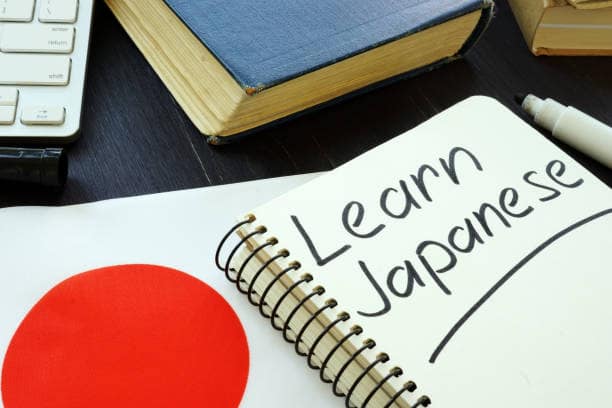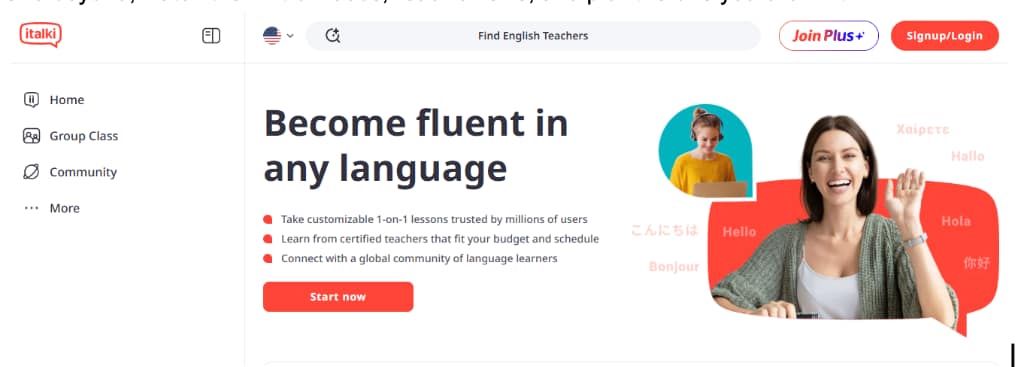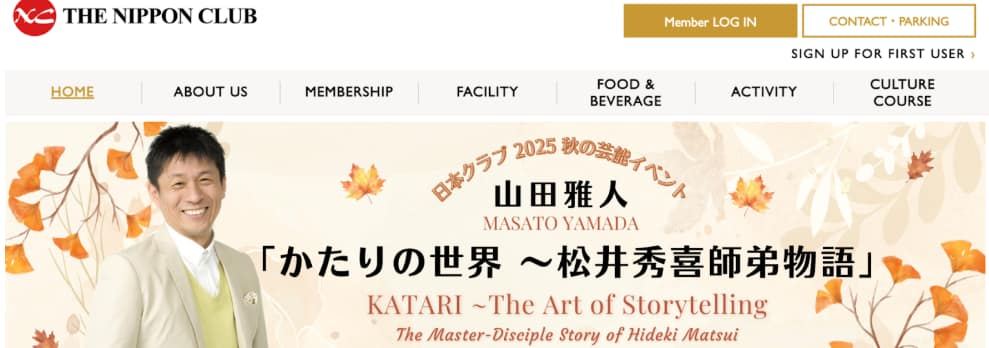So Many Ways to Say “Konnichiwa” in NYC
There’s something special about New York—you hear new languages on every block, you can practice chopsticks at midnight, and finding a Japanese class feels less like shopping and more like wandering through an endless maze of choices. Do you go for a semester at a university? Join a cozy class at a cultural center? Or jump into a one-on-one lesson with a native speaker while sipping coffee at home?
If you’ve tried searching for Japanese classes in New York, you know the options feel almost overwhelming. No two learners have the same reason for signing up: maybe you’re getting ready for a business trip, itching to pass the JLPT, hoping to help your kids with their anime crush, or want to finally order sushi in Japanese. The good news? There’s a class—or a teacher—for that.
This guide is here to turn that maze into a clear path. We compared dozens of legit classes, schools, and platforms (including online options you can access from anywhere in the city), then picked the top five. If you want structure and community, you’ll find it here. If you need total flexibility, we’ve got you covered. And all our picks let you check a teacher’s credentials before you spend a dollar (a must in NYC’s “native speaker” jungle!).
Let’s find the right Japanese class for you.
How We Picked These Classes
With so many options across NYC, how do you even begin to choose? Here’s what we looked for:
- Teacher credentials: Real teaching experience, JLPT know-how, or serious university training.
- Format & flexibility: In-person, hybrid, weekend-only, and online—because everyone’s schedule is a little different.
- Level coverage: Can you join as a total beginner? Level up to advanced? Take a placement test?
- Curriculum & materials: Do they use standard textbooks (think Genki, Marugoto, Irodori) and offer homework or feedback?
- JLPT/exam prep: Special classes, mock tests, and instructors who know the exam inside-out.
- Transparency: Clear info on prices, teachers, course outlines, and trial classes (no hidden fees, ever).
- Location & commute: Can you get there without a 90-minute subway odyssey?
- Community & extras: Culture nights, language exchanges, or conversation tables—because learning is social.
We excluded anyone without clear teacher bios, mystery pricing, or a track record of reliability. Each option here was checked for up-to-date info as of June 2024, with links to try a class or chat with a teacher before you sign up.
Fast Comparison: The Top Five Japanese Class Options in NYC
| Provider | Best For | Format | Price Range | Levels | Why Pick It? |
| italki | Flexibility & 1:1 lessons | Online | $7–$45/hr | All | Tons of teacher choice, try before you commit |
| Japan Society | Structure, community, culture | In-person/Hybrid | $420–$625/term | All | Serious program, strong events |
| Nippon Club | Weekend, community, family | In-person | $210–$380/term | Most | Small classes, Japan Foundation ties |
| Columbia University | Academic rigor, credits | In-person | $1,000+/term | All | Best for college credits, JLPT prep |
| NYU | Evening/weekend structure | In-person | $690–$1,200/course | Most | Good for working adults, solid extras |
Deep Dives: Best Japanese Classes in NYC (2025)
1. italki — Flexible 1:1 Lessons for Busy New Yorkers (and Beyond)
Instant Access, Total Customization
Imagine finding a Japanese teacher who matches your schedule, budget, and vibe—no crowded trains or semester deadlines. italki is one of NYC’s favorite ways to make language learning fit your life, not the other way around. You scroll through hundreds of tutors from Japan and beyond, watch their intro videos, read reviews, and pick the one you click with.
If you prefer personalized, one-on-one lessons, exploring italki Japanese tutors in New York can help you connect with professional teachers who understand your specific goals—whether that’s business etiquette, JLPT prep, or just chatting fluently before your next trip to Tokyo.
Lesson types? You can stick to grammar with a pro, practice business meetings, rehearse travel Japanese, or just chat about your favorite manga. Complete beginner? You can ask your teacher for a “structured plan” and they’ll walk you through Genki chapters, notes, and speaking prompts at whatever pace feels right.
Teacher Credentials & Quality
- Professional Teachers: Certified, with teaching degrees or classroom experience (great for structure or test prep).
- Community Tutors: Native or advanced speakers who keep things casual and fun (think travel lingo, slang, everyday conversation).
- Strong reviews and video intros make it easy to spot the right fit—skip anyone without credentials or video samples.
Scheduling & Costs
- Lessons from $7–$45/hour (most pros in the $12–$28 range)
- Discount trial lessons (many under $10 for a half-hour “get to know each other” session)
- Pay as you go, no packages required
- Choose your time, cancel if needed—no semester commitments
Pros & Cons
✔ One-on-one attention, always on your schedule
✔ Try several teachers before picking a regular
✔ Fits any budget
✘ No in-person meetups or classroom experience
✘ Need to self-motivate (but many teachers will check in on your homework if you ask!)
Who’s italki for?
Anyone who wants flexibility, especially if you have a busy (or unpredictable) schedule, or you want lessons focused exactly on your goals—JLPT, business, travel, daily chat. Bonus: You can always add a classroom or group class later if you miss in-person connections.
Tip to get started:
After your first trial lesson, ask for honest feedback and a sample plan. Don’t be shy about trying a couple of tutors—finding your match is worth it!
2. Japan Society Language Center — NYC’s OG for Structured Learning
New York’s Favorite “Real” Japanese Classroom
If you picture learning Japanese the old-fashioned way—pens, notebooks, a teacher guiding you step-by-step—Japan Society is a classic. Their Language Center, founded in 1972, is home base for learners who want a clear program, small group energy, and a serious tie to NYC’s Japanese community.
Teachers & Curriculum
- All instructors are qualified (often with decades in language education and bilingual teaching skills)
- Uses standard textbooks (Genki, Marugoto)
- Offers full level progression, from total beginner to advanced (eight or more levels)
- Extra workshops (calligraphy, business Japanese, JLPT masterclasses)
Schedule & Format
- 3-4 semesters each year (spring, summer intensives, fall, winter)
- Evening and weekend options for adults
- Choose in-person in Midtown or join from home with hybrid/remote options
- Class size: usually capped at 10–15
Price & Policies
- $420–$625 per course (10+ weeks, includes materials)
- Placement test for correct level (online or in-person)
- Discounts for Japan Society members
- Refund policy: Partial refunds up to second class
Pros & Cons
✔ NYC’s most trusted classroom—community feel, cultural events, language tables
✔ Serious curriculum and clear level structure
✔ Prepares students for JLPT (with exam-focused electives)
✘ Schedule fixed by semester—less flexible
✘ Not the cheapest
Who’s it for?
Serious beginners, intermediate learners who want real structure, and anyone looking for group energy (plus networking with local Japanese culture lovers).
Tip for new students:
Don’t guess your level—you can book a quick placement call with staff before signing up, to avoid feeling lost or bored in your first month.
3. Nippon Club — Community and Family-Friendly Weekend Japanese
Small Classes, Warm Vibe
Hidden just off Fifth Avenue, the Nippon Club keeps NYC’s deepest community ties to Japanese learning. Formerly the home of local Japan Foundation classes, they now run their own accredited Japanese courses—perfect for adults, or families who want a fun, friendly environment (weekend options for children and teens, too).
Teachers & Approach
- All instructors are either certified by the Japan Foundation or equivalent, and bring years of experience
- Curriculum draws from Japan Foundation models (Marugoto, JF Standard), focusing on real-life communication
- Plenty of conversation, role play, and even cultural homework assignments
- Occasional cultural workshops and club events
Format & Access
- Semester-based, usually Saturdays and/or evenings
- Adult and children’s groups available (kids’ ages vary by semester)
- Small groups (6–12 students for a cozy feel)
- In-person midtown location (easy subway access)
Cost & Registration
- $210–$380 per course (shorter cycles than Japan Society, but affordable)
- Free or low-cost trial days for new students
- Family discounts for enrolling multiple children
- Flexible refunds up to the second week
Pros & Cons
✔ Community driven—friendly groups, easy to make friends
✔ Good for families (and anyone who prefers a casual atmosphere)
✔ Quality teachers trained in JF methods
✘ Fewer levels than larger schools
✘ Less academic than university-style classes
Best for:
Adults or parents who prefer learning in small groups, kids and teens just starting out, and anyone who values community-first language learning.
Advice for families:
Most classes fill quickly—join the interest list early if you want a spot, especially for children’s weekend cycles.
4. Columbia University — Academic Powerhouse with Credit and JLPT Rigor
Language Learning, Ivy League Style
If you want a Japanese class that’s as serious and challenging as the city itself, Columbia University’s language programs are hard to beat. Offering undergraduate courses and continuing education for the public (via School of Professional Studies), Columbia’s Japanese department is ideal for students aiming to master the language in an academic setting—or earn credit while prepping for the JLPT.
Faculty & Pedagogy
- Instructors hold advanced degrees in Japanese linguistics or education
- Many full-time professors, not just adjuncts
- Deep experience with JLPT prep and research
- Curriculum uses Genki and bespoke syllabi, with regular homework, quizzes, and feedback
Class Options
- Multiple sections each semester (university calendar)
- Placement testing required (they’ll help you figure out where to start)
- Non-degree/continuing ed options for general public
- Large group lectures and smaller recitations or labs
Cost & Schedule
- $1,000+ per term (for non-degree/continuing ed students)
- Runs on semester basis (fall, spring, summer)
- Full access to campus resources (office hours, libraries, club events)
Pros & Cons
✔ Best path for credit-seekers or college students
✔ Top-quality instruction, challenging assignments
✔ Real academic progression—good for grad school or JLPT N3–N1
✘ Highest price on this list
✘ Rigid schedule and competitive placement
✘ Not a good fit if you just want casual, conversational Japanese
Who’s it for?
Students needing credit, serious learners (including working professionals taking a university “gap year”), and anyone targeting high-level proficiency or an advanced JLPT score.
5. NYU (East Asian Studies + SPS) — Evenings and Consistent Structure
Study After Work? NYU Makes It Possible
Don’t want to give up your 9-to-5 but still want to learn Japanese with top-notch support? NYU’s evening/continuing education Japanese courses are famous in Manhattan for a reason. They combine real curriculum, plenty of structure, and teachers with a knack for engaging adult learners.
Teachers & Approach
- Most instructors trained in the US and/or Japan, with advanced teaching degrees
- Curriculum sticks to well-known textbooks (Genki, Japanese for Busy People)
- Class projects, group chats, and asynchronous resources for extra practice
Course Details
- Evening and weekend cohort options (fall, spring, summer)
- Courses typically run 10–14 weeks, with clear progression (Beginner I–III, Intermediate, up)
- Offered both in NYU East Asian Studies and School of Professional Studies (SPS) divisions
Pricing & Format
- $690–$1,200 per semester/course
- Manhattan campus classrooms (fully in-person as of 2024)
- Discounts or payment plans available for NYU staff, alumni, and returning students
Pros & Cons
✔ Evening focus—fits a full-time job
✔ Solid instructors and curriculum
✔ Network with other working professionals
✘ Campus-based: you need to get to Greenwich Village
✘ Waitlist for popular levels
Who’s it for?
Working adults, degree students, and anyone wanting to build language as a serious hobby (with accountability baked in).
Quick tip:
Email instructors if you’re unsure about your level; they’re responsive and will help you start at the right spot.
Choosing the Right Program: Side-by-Side Analysis
Still on the fence? Here’s how to match your goals to the right option:
Quick Goal-Matcher
| You want… | Try… |
| Totally flexible, 1:1 help | italki |
| Structured progress, community events | Japan Society |
| Affordable, weekend group class | Nippon Club |
| College credit or advanced JLPT | Columbia |
| Evening/weekend, professional circle | NYU |
Trade-Offs You Should Know
- Classroom energy vs. flexibility: Cultural institutions (Japan Society, Nippon Club, universities) offer camaraderie, real group feedback, and cultural extras. They can be less flexible, more expensive, and require a commute.
italki offers privacy and a do-it-your-way approach, but you’ll miss out on in-person meetups. - Price: Online lessons (italki) can be as cheap or expensive as you choose—great for trial and error. University and institution classes cost more upfront but include books, events, and multi-hour weeks.
- JLPT prep: If you need structure, university or Japan Society JLPT courses are hard to beat. For last-mile test practice or conversation, a seasoned italki tutor crushes rote drills.
Sample Schedules
- JLPT N5 Prep:
2x/week at Japan Society or Columbia + 1x/week italki conversation = strong foundation, quick speaking gains. - Survival Travel:
1x/week Nippon Club class + intensive italki private lessons two weeks before your trip. - Busy Pro:
1 evening/week at NYU or fully remote with flexible italki sessions.
Published by HOLR Magazine.







